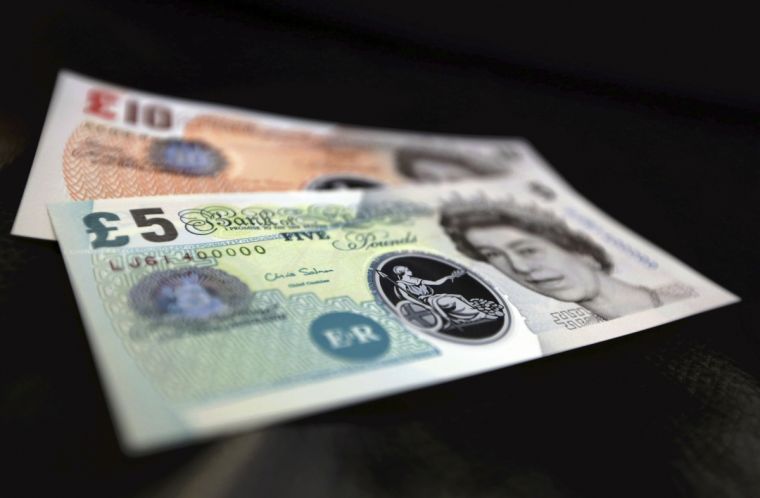Why Tax Justice is a mission imperative for today's church
The increasing inequality in our world is surely an affront to a God who makes it clear all human beings are his children and deserve 'an equal sharing of the things that earth affords'.
Yet the gap between rich and poor grows annually. In 2017/18 our local foodbank increased its food parcels from 460 the previous year to 590, and its hygiene packs even more. Meanwhile the Sunday Times Rich List informs us that the wealthiest 1,000 people in our nation increased their wealth to £724 billion last year, a 10 per cent increase on the year before.

Prophets such as Jeremiah and Amos would surely be offering a vigorous critique of a society which tolerates such difference, and allows children to go hungry to school in the sixth richest country in the world. A part of the answer must be a reform of the tax system, which would enable very wealthy individuals and companies to contribute a fairer share of what they hold.
'Tax Justice' is the shorthand name for what has now become a global campaign to bring about that fairer sharing. One of its key areas of activity is to expose the use of so-called 'tax havens', named by others as 'robbers' dens' where the rich can hide their wealth and dodge the tax that should be paid. Among these havens are several British Overseas Territories such as the British Virgin Islands (BVI) and the Cayman Islands, and also our three Crown Colonies – Jersey, Guernsey and the Isle of Man. The BVI was frequently named in the Paradise Papers revelations, which showed in detail how the richest hide their cash.
A small breakthrough was made recently with the amending of the parliamentary Sanctions and Money-Laundering Bill when Labour's Margaret Hodge and Conservative Andrew Mitchell tabled an amendment requiring the Overseas Territories (though not the Crown Colonies) to set up public registers so that it begins to become clear who owns the secret trusts and foundations set up there. The government agreed this has to be done by the end of 2020.
Meanwhile vigorous campaigning goes on at European and global level in relation to an international financial system in which it is estimated 10 times as much money flows out of Africa as flows in through aid and investment.
This is partly due to the activities of Transnational Corporations (TNCs) and partly to the way wealthy elites channel money through Swiss banks or via the City of London into tax havens. This causes the whittling away of the tax base for poorer countries, an effect now knows as BEPS, 'Base Erosion and Profit-Shifting'.
The TNCs largely function by dividing up their business into separate entities, depending in which country they work, and move money around, creating more profit in lower-tax countries. Critics urge 'country-by-country reporting' and ultimately a unitary taxation system, where companies will produce a single annual report showing all countries where they operate, with the number of employees, assets, sales, profits and tax paid in each, so proper comparisons can be made.
Until now the churches have not identified tax as a mission issue, but that is beginning to change. In the UK the Methodist Tax Justice Network has been active since 2012, and as already reported in Christian Today relaunched itself in April as Church Action for Tax Justice (CAT).
CAT sees itself as the faith partner of groups such as the international Tax Justice Network, which has been working in this field for over 20 years, and Tax Justice UK, as well as bodies such as Christian Aid, the Ecumenical Council on Corporate Responsibility and the Fair Tax Mark. The latter is launching the first Fair Tax Fortnight in the UK from June 9to 24.
In association with this CAT encourages churches to adopt June 17 as Tax Justice Sunday. Worship materials such a hymns, prayers, bible studies and a creed are available on the CAT website. It also urges churches as investors to question the tax policies of companies in which they invest.
Tax collectors have a bad press in the Bible and perhaps that has contributed to their dislike today. But taxation in the time of Jesus was entirely different. It raised money for the occupying Romans, the corrupt Herodian court and the Temple elite, and did nothing for the craftsmen and peasants from whom it was extracted.
Tax is a seriously cohesive force in bringing societies together. Arguably tax is God's way of sharing the enormous wealth which has been created from this earth He has given us, we should rejoice that we can pay our taxes and seek to ensure everyone shares in 'The Joy of Tax'.
Rev David Haslam is a Methodist minister and chair of Church Action for Tax Justice. 'The Joy of Tax' is by Quaker Richard Murphy, Bantam Press 2015.











